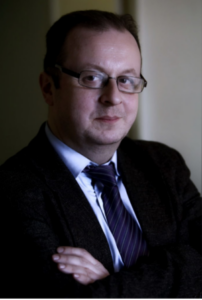Kazakh President Kassym-Jomart Tokayev’s state-of-the-nation address is a unique combination of solutions for the country’s many problems. The key is democracy (hence the decision to conduct the pre-term elections of the President and the Parliament in 2022-2023, liberalization of the legislation on political parties and other reforms). But, besides European-style democracy, the President is using a whole set of tools, which can improve the life of living generations – now, and not in some distant future.

Dmitry Babich
The decision to allocate 50 percent of the National Fund’s annual investment income to personalized accounts of today’s children for future use when the kids reach 18 years of age – this is a very effective idea practiced mostly in the Muslim oil states of the Persian Gulf and other oil-rich countries. This money cannot be taken off a child’s account until his or her maturity and it can only be spent for getting an education or buying a home for a young family. This model worked in Saudi Arabia, it worked in Kuwait and Qatar – there is no doubt that it will work in Kazakhstan, too.
Obviously, the President’s vision is simple and wise: Kazakhstan should use all of the world’s best practices. Some skeptics may say that few countries managed to combine European and Asian achievements in full. But, on the other hand, the most successful cases of rapid development in today’s world were exactly the cases of such (sometimes partial) combinations – Western industry and management plus traditional Asian work ethics and family values. Japan, South Korea, UAE can be cited as attractive examples.
As for the unique character of Kazakhstan’s example, there is one powerful argument in its favor: which other country on the territory of the former Soviet Union can boast of having excellent relations with both Russia? China and all of the Western world?
President Tokayev is setting the example himself. His diplomacy is aimed at maintaining respectful, peaceful relations with Russia while at the same time participating in global Western-dominated economic chains and international organizations with strict adherence to international law.
The address reflected the President’s basic strategy that the government should be given all the powers that it needs for its work, but once these powers are received, the government becomes responsible before the people.
Tokayev’s idea to extend the presidential term from five to seven years reminds one of the late French president Charles de Galle, who agreed to become the head of state in 1958 only on the condition of being given seven years in power for finalization of his projects.
Again, Tokayev is very meticulous in observing the norms of democracy: there will be constitutional limitations, the same person will not be able to rule for two seven year long terms in a row.
Demonopolization of the economy, support for small and medium business, creation of a competitive climate in the sphere of utilities and energy sector, flexible tax policy – these are the steps suggested by Tokayev for reducing the burden on an average Kazakh citizen.
Again, the President is not ‘inventing a bicycle.’ Demonopolization is a universal practice, the only way to achieve better results for everyone without a return to old administrative methods. Support for the private sector, especially its most effective companies – again, this is a tested method, which helped fuel some of the world’s best performing economies, from Hong Kong and Singapore to Finland and Sweden.
And, last but not least, the President spoke about national unity and the need to amnesty some of the participants of the January riots. “Many of the people who then broke the law admitted their guilt and showed repentance,” said Tokayev. “I think they deserve a second chance… but of course the amnesty will not be applied to people who committed terrorist acts and revealed inadmissible extremism. The men who were involved in the cases of torture will also not be amnestied.”
By all appearances, thanks to the President’s address all of Kazakhstan will have a second chance. The main thing is not to miss it.
The author is Dmitry Babich, a Moscow-based journalist with 30 years of experience of covering global politics, a frequent guest on BBC, Al Jazeera and RT.

